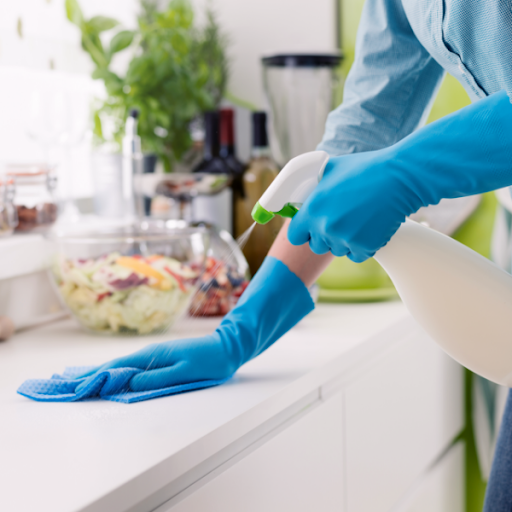How to prevent infections from spreading at home?
An infection occurs when microorganisms such as germs, viruses, bacteria, and fungi enter a person’s body and cause harm to it. They do that intending to either sustain, reproduce, or colonize.
Despite various technological advancements in medical science, we can’t forget about the basic hygienic actions we should take daily to help us prevent and reduce the spread of infections, especially at home.
It can’t be stressed enough how vital infection control and prevention are for healthcare.
If you have been exposed to an infection, contracted it, or taken care of someone who is infected at home, it is crucial to know how to avoid infectious diseases caused by an infection.
You can follow a few simple infection control guidelines to ensure you create and maintain a healthy and safe environment at home.
1. Wash hands
Wash your hands frequently for at least 20 seconds with either an antibacterial bar soap or liquid hand wash. Microorganisms can stay alive on your hands for a few minutes to three hours.
If water and soap are unavailable, using an antibacterial hand sanitizer or antibacterial wipes would also be enough to keep your hands safe from these harmful microorganisms.
Read more about germs and how they spread.
2. Reduce sharing of personal items
You continuously share your items at home with the rest of the house members. To prevent infections from spreading at home, minimize sharing personal items with anyone, even if they live with you.
Brushes, towels, toothbrushes, razors, or other personal belongings can all be sources of infectious agents (bacteria, viruses, and fungi).
The adults should take responsibility and ensure that sharing personal items is reduced or eliminated, especially among children, to control and prevent infections from spreading at home.
With the already existing infectious diseases and Covid-19, it should go without saying that children require extra protection these days.
3. Cover your mouth while coughing or sneezing
Always cover your mouth while coughing or sneezing, regardless of whether you are sick. For most infections, the disease-causing microbe starts to grow long before symptoms appear.
Microorganisms can immediately spread through respiratory droplets while you cough or sneeze unless you adequately cover your mouth and nose.
The best practices for covering your mouth or nose while coughing or sneezing include using a tissue, handkerchief, or the crevice of the elbow.
4. Food hygiene
While most foodborne infections are not dangerous, some can lead to severe medical conditions such as kidney failure and meningitis.
You can prevent infections from foodborne pathogens in your house by preparing and storing foods safely. Here are some essential food hygiene precautions you should adopt in your home.
- Properly rinse the meat, poultry, fish, fruits, and vegetables before cooking or serving.
- Wash your hands with antibacterial soap and water before and after you handle any food item.
- Cook foods thoroughly at their ideal temperatures (poultry-180° F, roasts & steaks-145° F, and meats-160° F. Cook fish until it is opaque).
- Defrost foods only in the refrigerator or in the microwave.
5. Disinfect surfaces and objects
Clean and disinfect bathroom and kitchen surfaces and objects at least once a week to prevent infections from spreading at home.
For cleaning and disinfecting surfaces, you should use disinfectant surface cleaners. Similarly, always use power kitchen cleaner spray that guarantees to kill 99.99% of germs after cleaning kitchen surfaces and objects.
Some frequently touched surfaces are visibly damp; clean them with soap and water before disinfecting. These surfaces include:
- Counters
- Tables
- Doorknobs
- Sinks and faucets
You can use multi-surface disinfectant spray for counters, tables, doorknobs, sinks, faucets, and other surfaces. However, wiping them with antibacterial multiuse wipes should be enough to remove any microorganisms from electronic items.
Some cleaning supplies or products such as brooms, sponge mops, cleaning clothes, rubber gloves, mops, and buckets can become a source for breeding pathogens responsible for various infections.
Therefore, soak such cleaning products in bleach and water or with antiseptic liquid for at least 5 minutes before and after using them.
Other Important Tips
- Clean higher surfaces before the lower ones. For example, clean kitchen counters and sinks before floors and toilets.
- Always wear gloves when cleaning anything in the house.
- Change the water in flower vases often.
- Keep the home well-ventilated with fresh air
